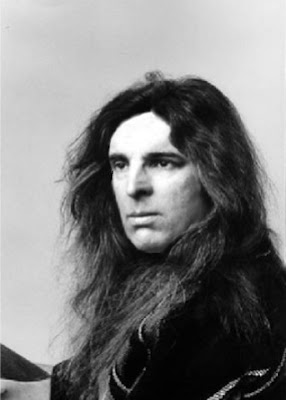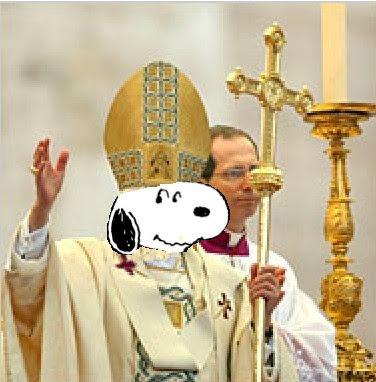I guess I missed yesterday's blog entry. Oh, well; calendars and schedules are for squares, anyway.
***
Today's blog entry is participatory! Here's a litmus test for your intellectual/spiritual orientation: What do you think of the ending to Keats's "Ode on a Grecian Urn"? More specifically, do you agree with the ending, or is Keats full of it? Does this ending resolve the poem, or is Keats dodging the questions he raises?
In case you haven't memorized the poem, it goes like this:
ODE ON A GRECIAN URN
By John Keats
Thou still unravished bride of quietness,
Thou foster child of silence and slow time,
Sylvan historian, who canst thus express
A flowery tale more sweetly than our rhyme:
What leaf-fringed legend haunts about thy shape
Of deities or mortals, or of both,
In Tempe or the dales of Arcady?
What men or gods are these? What maidens loath?
What mad pursuit? What struggle to escape?
What pipes and timbrels? What wild ecstasy?
Heard melodies are sweet, but those unheard
Are sweeter; therefore, ye soft pipes, play on;
Not to the sensual ear, but, more endeared,
Pipe to the spirit ditties of no tone.
Fair youth, beneath the trees, thou canst not leave
Thy song, nor ever can those trees be bare;
Bold Lover, never, never canst thou kiss,
Though winning near the goal---yet, do not grieve;
She cannot fade, though thou hast not thy bliss
Forever wilt thou love, and she be fair!
Ah, happy, happy boughs! that cannot shed
Your leaves, nor ever bid the Spring adieu;
And, happy melodist, unweari-ed,
Forever piping songs forever new;
More happy love! more happy, happy love!
Forever warm and still to be enjoyed,
Forever panting, and forever young;
All breathing human passion far above,
That leaves a heart high-sorrowful and cloyed,
A burning forehead, and a parching tongue.
Who are these coming to the sacrifice?
To what green altar, O mysterious priest,
Lead'st thou that heifer lowing at the skies,
And all her silken flanks with garlands dressed?
What little town by river or sea shore,
Or mountain-built with peaceful citadel,
Is emptied of this folk, this pious morn?
And, little town, thy streets for evermore
Will silent be; and not a soul to tell
Why thou art desolate, can e'er return.
O Attic shape! Fair attitude! with brede
Of marble men and maidens overwrought,
With forest branches and the trodden weed;
Thou, silent form, dost tease us out of thought
As doth eternity. Cold Pastoral!
When old age shall this generation waste,
Thou shalt remain, in midst of other woe
Than ours, a friend to man, to whom thou say'st,
"Beauty is truth, truth beauty"---that is all
Ye know on earth, and all ye need to know.
I'm not going to drone on and on with my interpretation, because I don't want today's blog entry to degenerate into an undergrad term-paper interlude. Suffice to say, I can't believe everyone doesn't sigh with assent upon reading the ending of this poem. People usually either sigh with assent or scratch their heads, nonplussed. Which makes me scratch my head. While I'm sighing.
You make the call.








